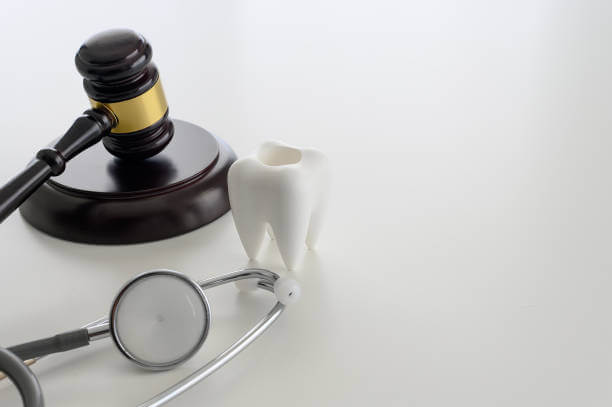
As a dentist, you are concerned with your patient’s health and welfare. However, you also worry about malpractice lawsuits that claim negligence, injury, or both.
Let’s explore the essentials of malpractice insurance for dentists. This can be your guide to peace of mind through malpractice insurance coverage suited to your practice.
Why Should a Dentist Carry Dental Malpractice Insurance?
The short answer to this question is that most licensing jurisdictions require dentists to carry malpractice insurance. In other words, it is the law. But, also, consider the following.
When a patient brings a malpractice lawsuit against a dentist, that person seeks financial compensation for poor dental techniques and personal injury. The financial risk to dental professionals can be substantial, threatening their ability to make a living and sustain the costs of running a dental practice. This includes purchasing and maintaining top-notch equipment and facilities as well as hiring and paying a livable wage to professional support staff.
As such, it just makes sense that most states mandate that dentists carry malpractice insurance. If the dentist is part of a group practice, the business entity of that practice may purchase the policies which cover the providers. Individual dentists who are not part of a group practice may purchase an appropriate level of insurance coverage as well.
In general, dentists purchase policies that pay $1 million dollars per occurrence of determined malpractice with a $3 million-dollar annual aggregate, or a combination of separate occurrences for litigation against the particular dentist. Some dentists may elect to purchase policies with higher limits of coverage.
The Two Basic Types of Dental Malpractice Insurance Policies
Across the United States, dentists purchase dental malpractice insurance policies which fall into two basic categories:
- Claims-made in which coverage is provided when both the injury or negligent incident happens during the term of the policy unless something called tail coverage is included in the policy (the tail add-on covers a dentist when leaving practice or retiring)
- Occurrence in which lifetime coverage is provided for the time when the policy is in force, regardless of when the claim is made
The dentist or employer purchasing the policy must know which kind it is and if it is appropriate for the healthcare provider. Typically, claims-made policies are less expensive than occurrence policies.
The Four Basic Kinds of Malpractice Insurance Coverage
Dental malpractice insurance policies cover four distinct areas. They protect the dentist from:
- Professional liability due to negligence during rendering dental services. The financial liability includes legal fees, lost wages, and damages due to personal harm.
- Property damage claims resulting from damaging clinic equipment used in the assessment and treatment of patients
- Medical payments to patients who have been treated by a physician, who has been hospitalized, or who underwent physical therapy or counseling due to dental malpractice
- A personal injury that protects the dentist in case of libel, slander, jail time, or other circumstances related to malpractice claims
The Right Dental Malpractice Insurance for You
Your decision to purchase dental malpractice insurance is very important. So, ensure to consult an insurance professional with a proven track record of providing coverage that gives you the peace of mind you need to take care of your patients and your employees.
At eQuoteMD, we offer complimentary dental malpractice consultations and policy quotes which consider your financial resources, possible liabilities, the setting and state in which you practice, and the services you render. As insurance brokers, our professionals look for the best possible coverage at the lowest possible premiums.
To learn more about us and to discuss a complimentary quote, please call our St. Louis, Missouri office at (855) 823-2803, or request your quote online. We deal only with A-list insurance carriers and help dentists in all 50 states get the coverage they deserve.



